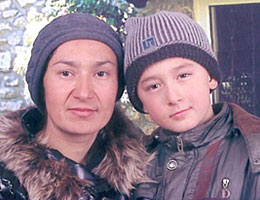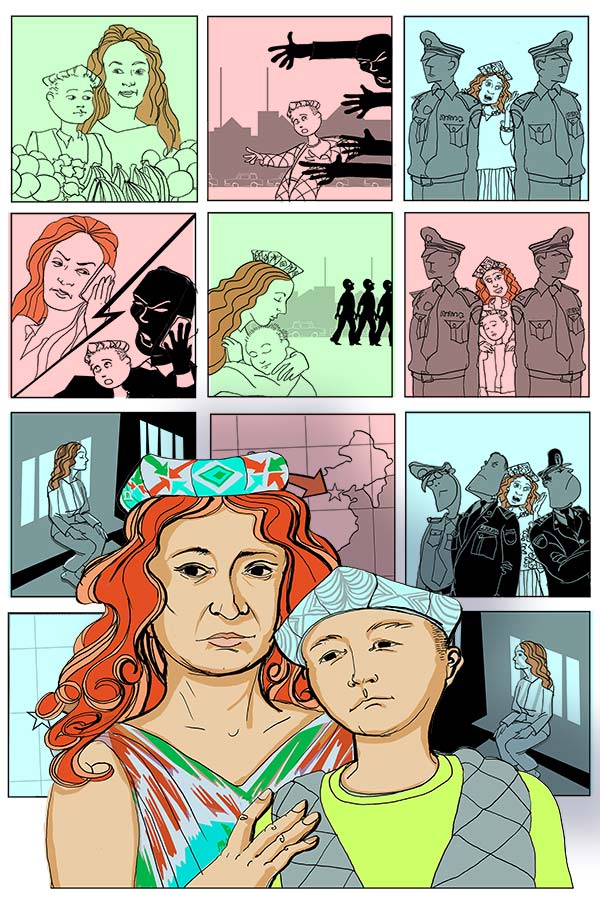Already a widow at age 33, Tohti was working in 2009 as a fruit seller in the northern Chinese city of Dalian when her son was kidnapped. She had temporarily returned home for a family emergency, leaving her son in the care of a neighbor. And when she received a phone call from her neighbor saying that her son had not returned from school, she flew back to Dalian.
"I immediately called the police in Dalian and reported the situation, but they never called back," she said to Radio Free Asia. "Finally, I took action myself to rescue my child.”
Weeks earlier she had received phone calls from a criminal gang asking to "buy" her seven-year old son Abbas Tayir. So she found it easy to call the abductors, threaten them with police reports, and secure her son's release.

Nurungul Tohti and her son Abbas Tayir, Dec. 25, 2011. Handout
But she suspected sexual abuse when her son told her he had been warned not to say what had happened to him during his captivity.
What began then for Tohti was a determined search for justice.
When Dalian police refused to take up the case, she traveled to Beijing where she petitioned in front of United Nations offices in the hope of getting the international community to pressure China over ethnic discrimination.
She was then detained by police sent from her hometown to bring her back to Xinjiang, but she escaped, was captured again, and was finally sent to Uchturpan, where she was jailed for 39 days.
Released upon her signed promise that she wouldn't leave home again, she immediately traveled to Beijing where she petitioned again, and again she was forcibly repatriated to her home.
Several times during the year, she tried to leave for Beijing but was prevented each time by police. By then, Tohti was calling her treatment an example of ethnic discrimination by Chinese officials against China’s Uyghur minority.
In March 2012, as Chinese police rounded up petitioners and other activists in Beijing ahead of a meeting of the National People's Congress, Tohti was detained in front of a crowd of onlookers in Uchturpan.
“Finally, I took action myself to rescue my child.”
“They dragged me to a police car,” she later told RFA. “My legs were still outside the car as they drove off,” she said.
Police asked her whether she felt ashamed to be seen in public in such a state, but she answered, ‘If you feel no shame as a tough police officer, why should I feel shame as a victim of your brutality?’”
A year later, an Uchturpan police officer answering questions from an RFA reporter said that Tohti was being held for "threatening national security." She was released after 18-month.
She was released on condition that she not leave Uchturpan again, but she left to find work as a waitress in a government building in the capital, Urumqi.
She was arrested again and is now jailed in the capital, where neither her family nor RFA reporters can reach her.
Tohti's story remains a testimony to the amazing force of spirit of a single, lonely woman confronting the machinery of an oppressive state.


 “It's Not OK: Women struggling for human rights” is a series of portraits of Asian women caught in the struggle for human rights in their communities. It was produced by Radio Free Asia. Download the
“It's Not OK: Women struggling for human rights” is a series of portraits of Asian women caught in the struggle for human rights in their communities. It was produced by Radio Free Asia. Download the